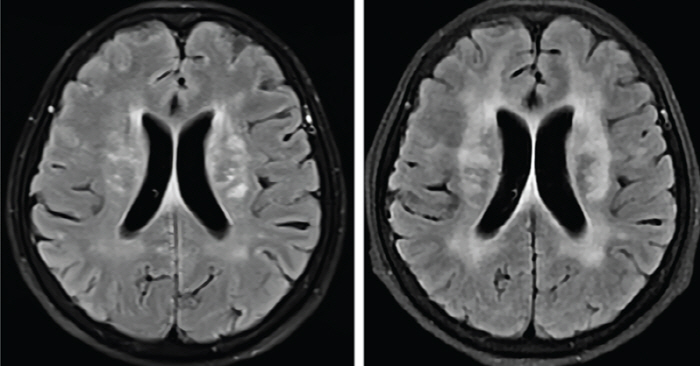Uncooked Women Eating This, Rare Parasite Infection...a high fever and delirium
Mar 20, 2025
|
A 60-year-old Chinese woman was taken to a hospital due to fever and delirium that lasted for three days, according to a recent case published in the American Medical Association Journal 'Neurology' by researchers such as Shandong Medical School and Zhenan University Hospital in China. I couldn't speak or understand other people's words because I wasn't in good condition.
The medical staff initially suspected meningitis in consideration of high fever, delirium, and neck stiffness.
MRI examination revealed several brain lesions that could indicate infection. This was also consistent with the initial diagnosis.
However, even after two weeks of antibiotics, the condition worsened.
Follow-up MRI revealed that brain lesions were significantly increased, and eosinophil (a type of leukocyte) levels were abnormally high, suggesting the possibility of parasitic infection.
As I asked the question, it turned out that she had eaten crayfish the night before the symptoms began. This led to suspicion of parasitic infection.
Further testing confirmed that the patient was infected with 'Angiostrongylus cantonensis', a parasite caused by eating undercooked seafood.
The parasite has developed eosinophilic meningitis, a rare condition in which parasitic infections cause brain inflammation.
Unlike bacterial meningitis, eosinophilic meningitis is characterized by increased eosinophils, a type of white blood cell.
The medical team explained that the parasite may have traveled to her brain and caused inflammation of the area responsible for communication.
The medical staff immediately prescribed 'albendazole', an anti-parasite that treats parasitic infections.
Less than two weeks after the treatment, she was able to walk normally and communicate.
After 4 months, MRI follow-up revealed that the brain lesions were almost gone, and most of the health conditions were recovered.
Cantonese hematopoietic nematodes usually live in rodents (mice), and snails or freshwater crayfish, shrimp, freshwater fish, and frogs can be carriers by the feces of infected mice.
The researchers emphasized that in order to avoid infection, it must be cooked and consumed.
This article was translated by Naver AI translator.














